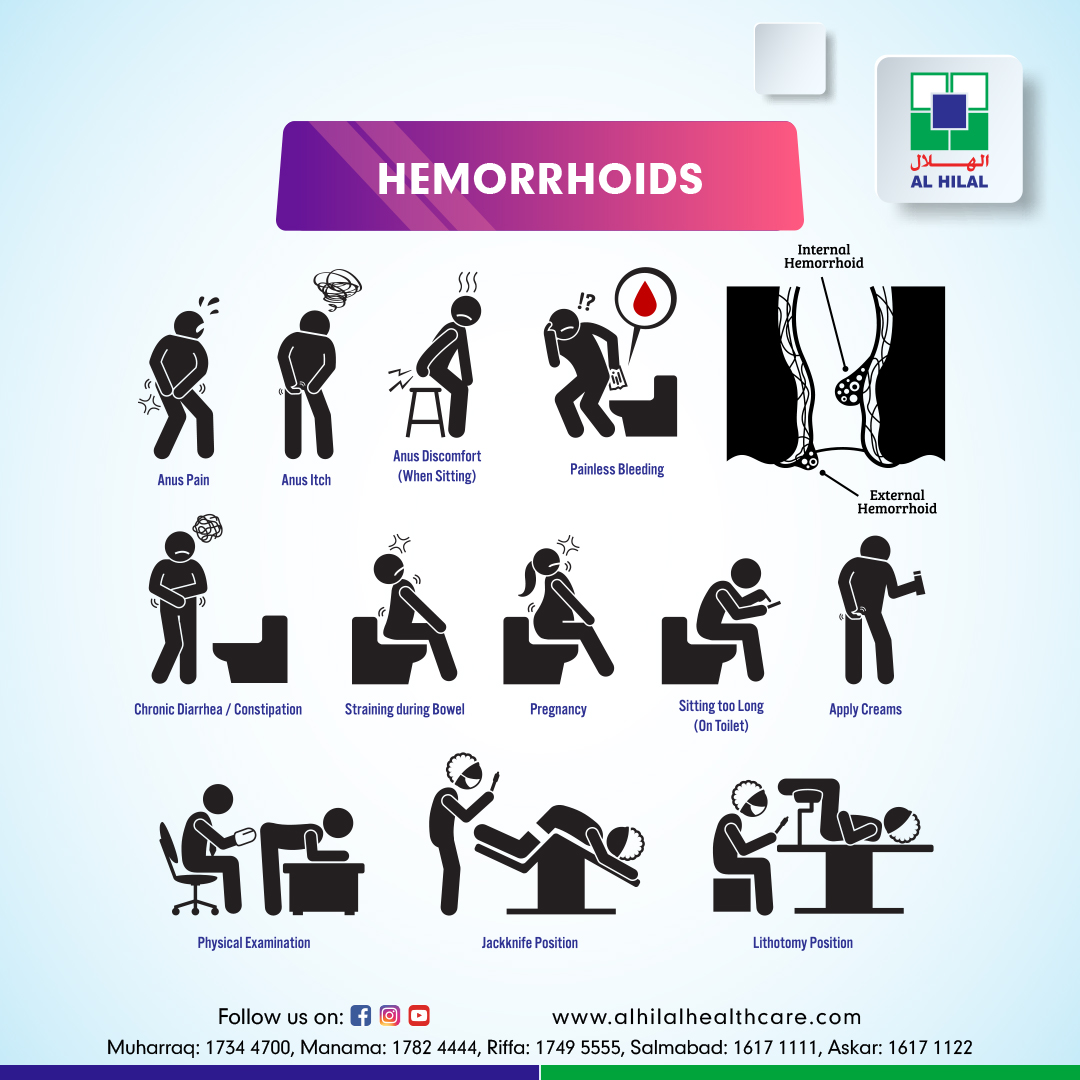Have you ever shivered after sitting on a chilly floor for an extended period? And wondered if the chill might be responsible for the discomfort in your bottom? While the idea of a cold floor causing hemorrhoids might seem far-fetched, it’s a question that has sparked curiosity and sparked plenty of discussion in various online forums.

Image: www.alhilalhealthcare.com
Hemorrhoids, those swollen and inflamed veins in the rectum and anus, are a common ailment affecting many people. They come in two forms: internal, which occur within the rectum, and external, which are visible beneath the skin around the anus. While the exact causes of hemorrhoids are multifaceted, the question of whether sitting on a cold floor contributes to their development is an intriguing one. This article aims to explore this connection and shed light on the underlying factors that influence hemorrhoid formation.
Understanding Hemorrhoids
To delve into the cold floor connection, it’s crucial to grasp the fundamental nature of hemorrhoids. Essentially, they result from the straining of the veins in the rectum and anus, often due to:
- Straining during bowel movements: Constipation can lead to forceful straining, putting pressure on these veins.
- Pregnancy: The added pressure from the growing fetus can put strain on the veins.
- Obesity: Excess weight puts added pressure on the veins, increasing their risk of swelling.
- Prolonged sitting or standing: Immobility can contribute to poor blood circulation and put pressure on the veins.
- Aging: As we age, the tissues that support the veins in the rectum and anus can weaken, making them more susceptible to swelling.
The Cold Floor Myth Debunked
While a cold floor might feel unpleasant, scientific evidence does not support the notion that sitting on it directly causes hemorrhoids. The discomfort you feel from sitting on a cold surface is primarily due to vasoconstriction – a temporary narrowing of the blood vessels. This narrowing is a natural response to cold, making the affected area feel cold and numb.
While cold weather might cause temporary discomfort, it does not directly alter the structure or function of the veins in your rectum. As the temperature returns to normal, your blood vessels dilate again, restoring normal blood flow.
The real culprits behind hemorrhoids are the factors related to pressure, straining, and underlying conditions like constipation or obesity.
Factors that Can Worsen Existing Hemorrhoids
While a cold floor itself is unlikely to cause hemorrhoids, it’s wise to be mindful of activities that could potentially worsen existing ones. Here’s a closer look:
- Prolonged Sitting: Sitting for long duration, especially on hard surfaces, can increase pressure on the rectal veins. This can exacerbate hemorrhoids, making them more likely to bulge, become inflamed, or bleed.
- Straining: If you experience constipation, straining during bowel movements can worsen existing hemorrhoids. This is why addressing constipation is crucial in managing hemorrhoids.
- Heavy Lifting: Activities that strain the abdomen and put pressure on the veins, like lifting heavy objects, can also contribute to hemorrhoid discomfort.
- Spicy Foods: Some individuals report that spicy foods can increase discomfort and irritation associated with hemorrhoids. It’s recommended to eat a balanced diet and listen to your body’s signals.
- Alcohol: Excessive alcohol consumption can dehydrate the body, making stools harder and increasing straining. This can worsen hemorrhoid symptoms.

Image: www.pinterest.com
Taking Care of Yourself: Prevention and Relief
The good news is that you can take steps to prevent hemorrhoids or manage existing ones. These strategies include:
- Maintain a Healthy Diet: Focus on fiber-rich foods like fruits, vegetables, and whole grains to prevent constipation. This helps to soften stools and make bowel movements easier.
- Stay Hydrated: Drinking plenty of water helps keep stools soft and easy to pass, reducing straining.
- Regular Exercise: Engage in moderate exercise, such as brisk walking, swimming, or cycling, to improve blood circulation and maintain a healthy weight.
- Avoid Prolonged Sitting: Take frequent breaks to stand up and move around to prevent pressure on the rectal veins.
- Warm Baths: Warm baths can help soothe hemorrhoid discomfort and promote relaxation.
- Over-the-Counter Medications: Creams, suppositories, and stool softeners are available without a prescription. These can provide temporary relief from hemorrhoid symptoms.
- Consult a Doctor: If your hemorrhoids are severe or persistent, consult a doctor for proper diagnosis and treatment options.
Does Sitting On A Cold Floor Cause Hemorrhoids
Key Takeaways
While sitting on a cold floor might not directly cause hemorrhoids, it’s important to remember that maintaining a healthy lifestyle is key to preventing and managing them. Focus on a balanced diet, regular exercise, staying hydrated, and avoiding prolonged sitting, lifting heavy objects, and constipation. If you experience persistent hemorrhoids, consult your doctor for personalized advice.
By understanding the factors contributing to hemorrhoids and taking proactive steps to address them, you can minimize your risk and experience greater comfort.






